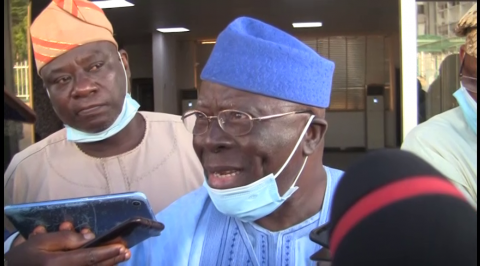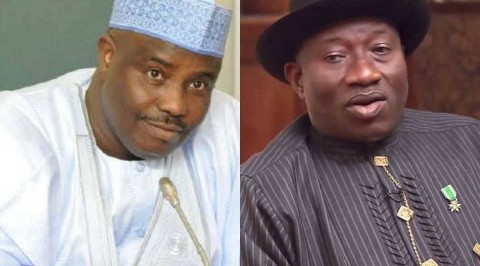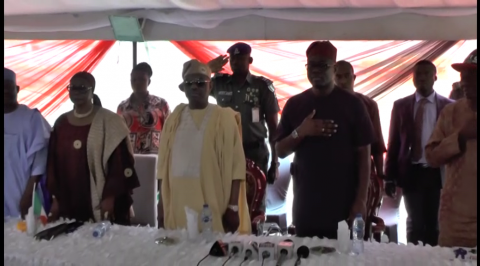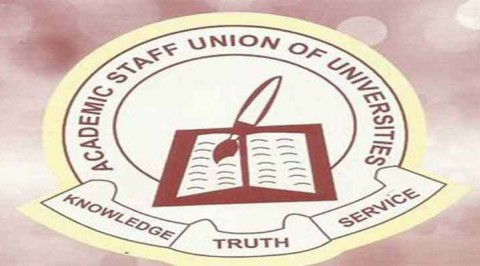Tambuwal Accuses Govt Officials Of Impunity, Corruption
Aminu Tambuwal, speaker of the House of Representatives, has returned a damning indictment on public officials, who he accused of impunity and resistance to the scrutiny of the National Assembly.
Tambuwal however warned that the House would not be intimidated by any official in its resolve to expose corruption in governance.
The speaker spoke while addressing members in Abuja to mark the end of the third session of the current 2011-2015 legislative tenure.
"Impunity” by government officials was intended to “frustrate” the legislature from performing its constitutional duties, adding that the intimidation would not work.
"I wish to assure Nigerians that the House of Representatives will not be intimidated into abdicating its sacred duty to provide robust checks and balances to executive action, especially for the purpose of exposing corruption in the polity and of ensuring the judicious management of our commonwealth,” he said.
The speaker also noted that “strange” things were happening to the country’s democracy, where government officials resorted to filing court cases in the hope of stopping legislative proceedings that called their actions to question.
He observed that some government officials did not know how to draw the line between the duties of the Executive and the Legislative arms of government.
Tambuwal added that, “This House has only recently concluded the exercise of approving the 2014 budget. The problem which the House experienced in the budgetary process emanated from several factors, including the entrenched culture of lateness in budget preparation and submission to the National Assembly by the Executive branch.
There have also been attempts to denigrate the National Assembly for our insistence on instilling sanity in the budgetary process. Only recently, a certain government spokesman was quoted as claiming that the National Assembly ‘distorted’ the 2014 budget.
It is inconceivable that an institution endowed by the 1999 Constitution with the legal duty and power to perform a function can be said to be distorting the performance of that function.
Those desirous of a National Assembly that will merely rubber-stamp a draft budget submitted to it by the Executive must look elsewhere.
During the session, we witnessed the dawn of a disturbing trend whereby people now go to court to stop the National Assembly from exercising its constitutional mandate and conducting its internal operations. This is unheard of in jurisdictions where genuine democracy is practised and venerated.
The usual democratic practice is that the powers of the courts are activated to challenge laws enacted by the legislature. This is the proper manner in which the judiciary is enabled to perform its constitutional function as the interpreter of both the constitution and duly enacted laws.
He argued that the resort to litigation was “an encroachment on the powers of the legislature and a slap in the face of the principle of Separation of Powers.





